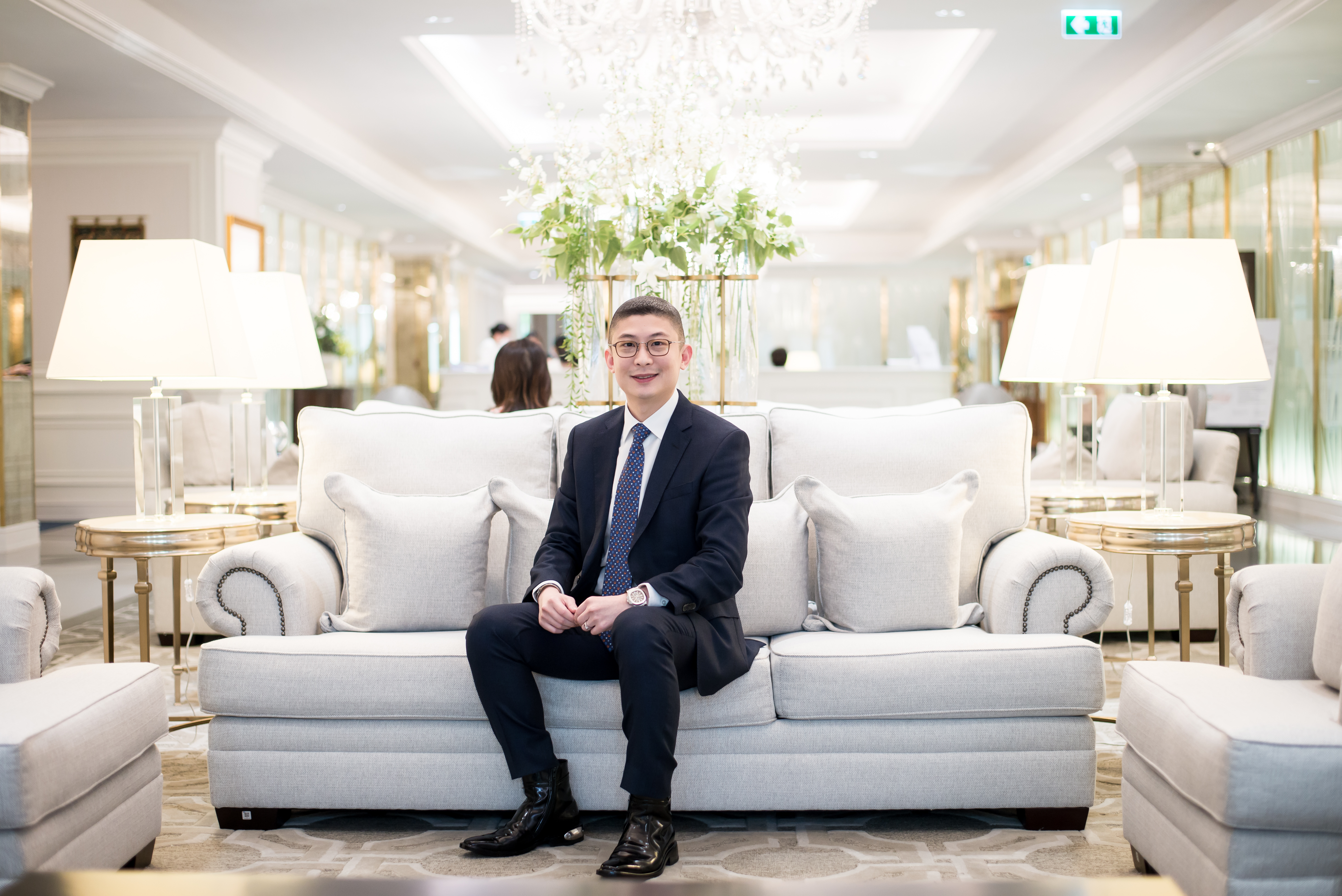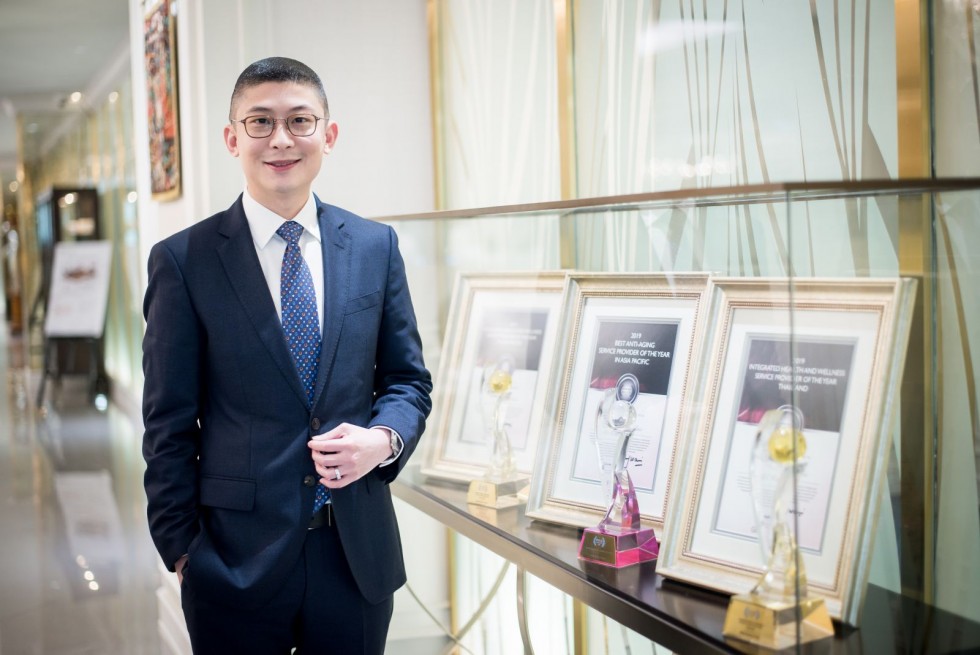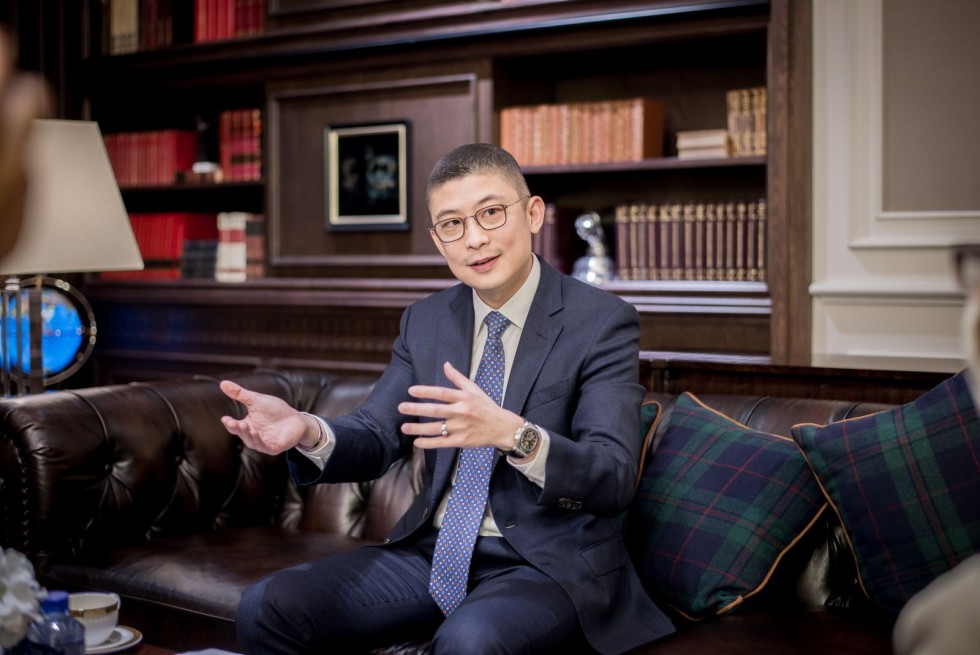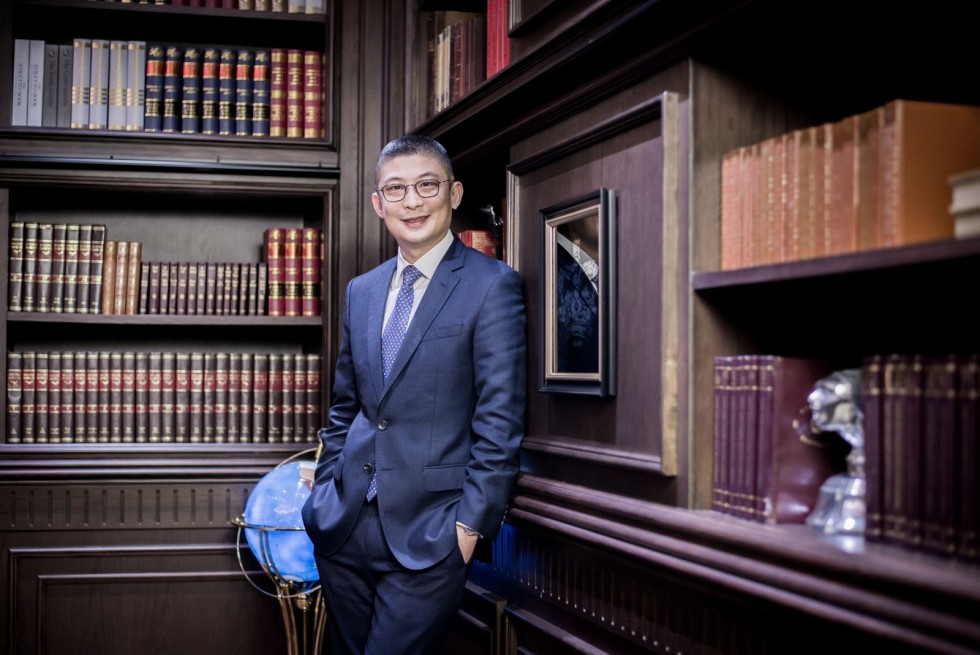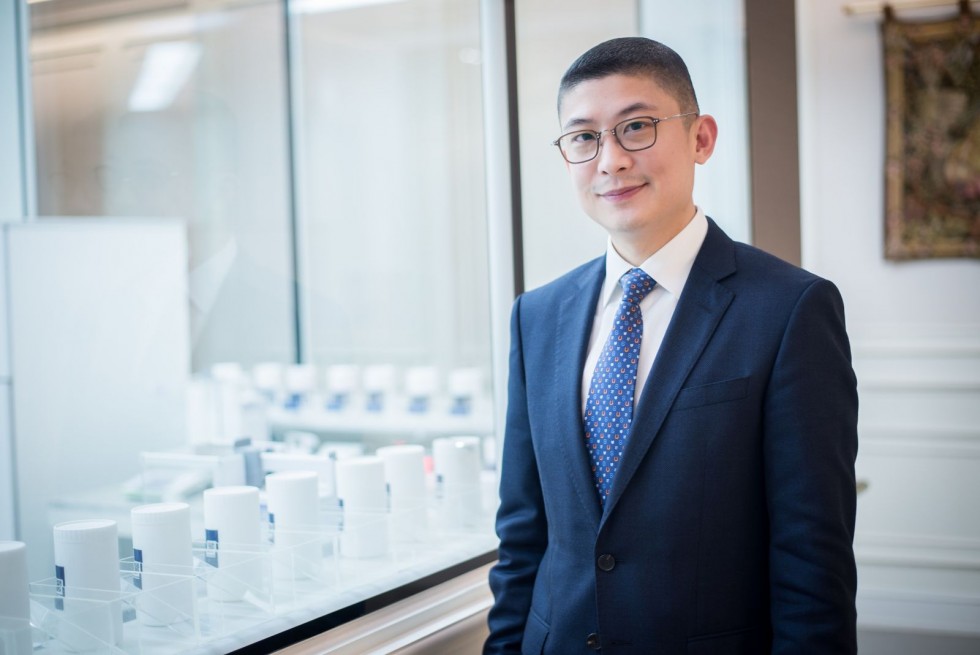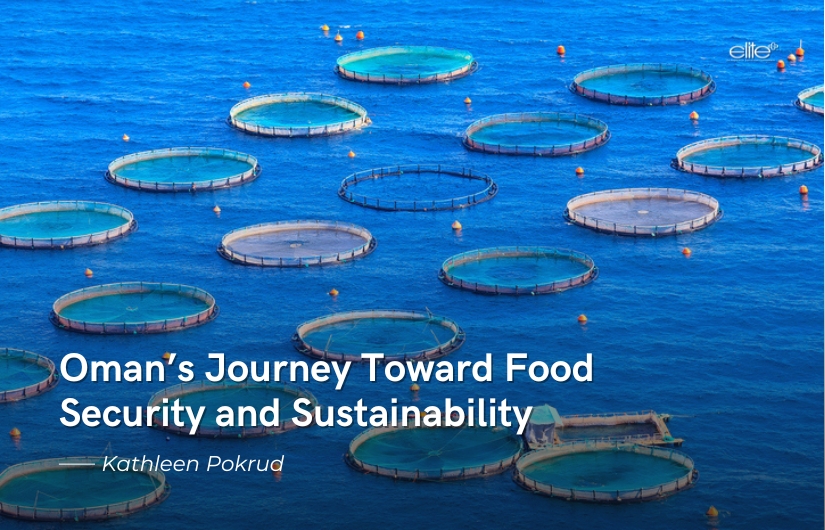My grandfather, who I loved and respected, died from lung cancer. At that time, I was unable to help him. Before this, he always went to the hospital for a regular check-up and for many years, the cancer remained undetected. Once he was diagnosed with cancer, the disease spread very quickly. I was still a student then and couldn’t help him, which I really regretted. I could only think about what I might have been able to do if we had known sooner. I so wanted to help him live longer, and his illness and death became my motivation throughout my student years to become a doctor.
After I completed my studies at the Faculty of Medicine, Siriraj Hospital, Mahidol University, I found I was interested in surgery, and when I was a resident at a hospital in Srisaket, I performed a number of Caesarean sections and some minor operations, making me consider specialising in surgery. However, during this time, my enthusiasm in regenerative medicine also grew as I avidly continued reading about the topic in books and medical journals. While I was still a student, the latest scientific breakthrough was the cloned sheep, Dolly and I was captivated. This led me to search for potential schools and colleges teaching regenerative medicine where I found the American Academy of Anti-Aging and Regenerative Medicine. And so, with the financial support of my father, I travelled to the US to pursue my dream to specialise in regenerative medicine.
Since then, I have extended my education to professional certifications, participating in many different courses related to disease prevention, stem cell therapies and sexual, antiaging, sports regenerative and obesity medicine, with the latter becoming my major concern.
My aim is to educate Thais to get fitter and healthier by adopting a healthier diet and lifestyle to prevent obesity, which is growing into a pandemic itself. When we are healthier through better lifestyle adoption, our bodies can ward off bacteria, viruses and a whole host of diseases more effectively, but as many people are still not eating or living right, currently, non-communicable diseases (NCDs) are the cause of over 75% of Thai deaths each year. This is precisely the reason behind my passion to continue to focus on regenerative and anti-aging medicine, to educate people and empower people to make the right choices for a healthier, longer life.
Why do people forget to care for their health?
Remember that preventive medicine is for people who aren't yet sick. For those who are already ill, they should seek curative treatment from hospitals. For those who are healthy and wish to improve their health to prevent future illnesses, I always recommend they come to our Regenerative Clinic. Many of my patients became motivated after witnessing family members or loved ones suffering from an illness and then decided to take action.
I like to advise my patients to focus on five key tips to improve and stay healthy in the long term: First, you must get enough sleep. During the day, we are on the go, from working to commuting to entertaining. We are using up our physical strength and our brain power, and when we get back home, like our mobile phone which we use on a daily basis, we must also recharge ourselves, and sleep is how we do it. When we sleep, the body repairs itself by eliminating waste products and producing growth hormones, which are responsible for deceleration of aging and fortifying the immune system, namely NK Cells, or Natural Killer cells, which are important for our day-to-day defence system. During this current Covid-19 outbreak, I cannot stress enough the importance of NK Cells as the key to the body's first defence against viral infections, tumours and cancer cells. Thus, ideally, one should aim to sleep an average of eight to nine hours each night, during which 15-20% will be in deep sleep.
From my perspective, I believe that getting quality sleep is one of the most important factors for good health. Even without the scientific backing, we all can feel that getting enough sleep makes us feel better, more alert and refreshed. Quality sleep, I want my patients to note, reduces the hunger hormone, ghrelin, which makes sleep effective for weight control. When there is an overproduction of ghrelin, this can cause a person to eat on average 300 calories more the following day. So, as you can see a lack in quality sleep is one of the major causes of obesity. Believe it or not, currently, Thailand is ranked second for the most obese people among ASEAN countries, just behind Malaysia, but we could soon surpass them.
What are your tips for a healthy diet and maintaining an appropriate weight?
Today's typical daily diet, consumed by most, is made up of very few vegetables, little fish, heavy on dairy products and fast, processed foods such as junk food. We now have a penchant for such fast foods, and bubble tea has become a very popular drink in Asia. Many people have a misconception when it comes to weight, bodyfat and body mass index. Usually, people think that Body Mass Index determines what a person should weigh; however, that is not enough. For example, a rugby player will have a very thick bone mass and a lot of muscle. Despite how big they look, they are actually quite lean. The same is true for a slim looking woman who has never exercised. She might look thin, but internally her body has a high level of fat.
At BDMS Wellness Clinic, we have a Dexa Scanning Machine, which provides detailed results of a person’s bone and muscle mass, as well as body fat percentage. If a man’s body fat percentage does not exceed 28%, then they are healthy. As for a woman, the body fat percentage should not exceed 32%.
The way a person controls or reduces fat does not relate solely to the amount of food they consume daily. If they eat less, their weight may drop, but this does not necessarily mean they will look thinner. It may mean they have lost muscle mass, which is not a good thing. Reducing body fat depends a lot on what and how a person eats, which leads to the third factor, a healthy, balanced diet.
Eating healthy does not mean starving yourself. That is not healthy. Eating healthy might, for some mean changing the way they eat. 50% of what you eat at each meal should be vegetables, one-quarter protein and the remainder carbohydrates. Carbohydrates are not dangerous, but sugar is. If a person consumes a lot of sugar and extra fats, these will accumulate in their body, and this can lead to a whole host of conditions and symptoms.
Eating healthy doesn’t mean you only eat vegetables either. That would be too stressful for meat lovers and unrealistic. You can also indulge in your favourite junk foods, as long as you control your intake. Next, I recommend regular exercise. This is essential, at least 30 minutes a day, five days a week. I do not recommend anyone overdoing it. A lot of people think that on the weekend, when they have more free time, they can exercise more, maybe for two hours to make up for what they missed Monday through Friday. However, this is completely wrong. Overdoing exercise puts stress on the body. If you don’t have enough time to exercise, then try to walk at least 10,000 steps as an alternative.
The last factor, which focuses on mental health is managing stress, which means relaxing, possibly meditating. When I say meditation, it doesn’t mean a person has to wake up early to meditate. Humans have two types of hormones, day and night. The day hormone relies on the sun. When the sun rises, it’s time for us to use our brains more actively, to work and do daily activities. As soon as the sun goes down, other hormones start to work, to repair the body and cells. However, our lifestyle nowadays prevents certain night hormones to function optimally in the evening, as we may have work to do, need to study or we think about projects, watch series, browse our social media or just do things that don’t allow our body to rest. We should stop all activities for at least two hours before going to bed. No work, no reading, no music, no movies and no napping. During this time, I recommend that you meditate. This is one way to relieve both mental and physical stress.
By following these recommendations, you can achieve wellness when it comes to lifestyle, genetics and the surrounding environment. Meanwhile, it is essential to have a regular check-up and plan your life in a way that is healthy.
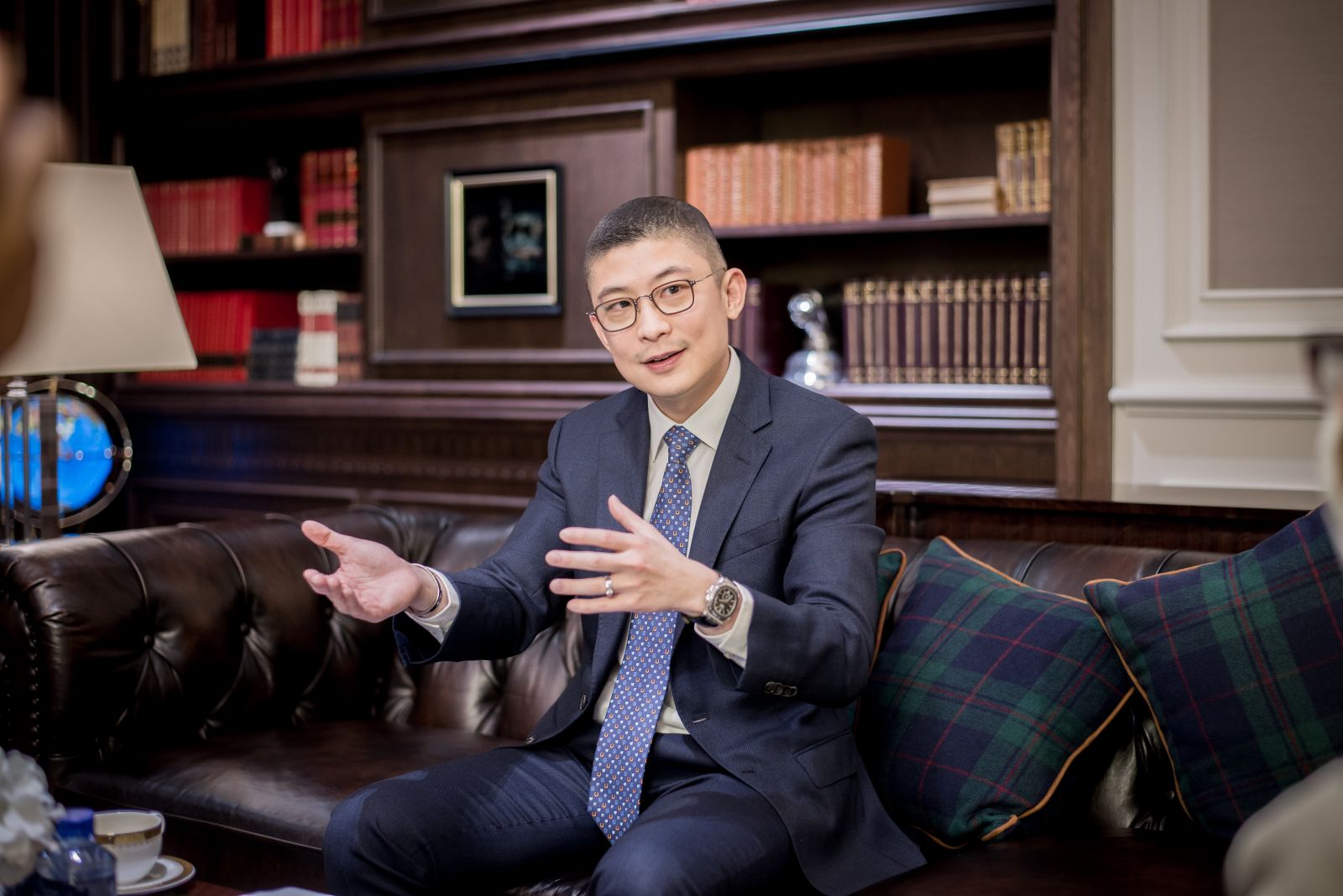
That’s great advice for how we can all take measures to improve our health, thank you. Now, turning to BDMS Wellness Clinic, where would you say you stand out in comparison to other existing wellness centres?
At BDMS Wellness Clinic, we take a holistic approach with a multidisciplinary team representing different branches of medicine. Our doctors take on the role of a health coach, where thorough investigation is necessary to prescribe the preventive course of action through advice, treatment programs and lifestyle interventions. At our clinic, in our screening procedures we apply gold standard technology to support our examinations. Nowadays, healthcare technology has reached the stage where certain equipment, machines or tests can analyse genetic disorders, the heart, blood and blood vessels, stress, brain cells and more. Therefore, each treatment we prescribe is different and personalized for each patient.
Our president's vision for BDMS Wellness Clinic is to provide the highest quality services in preventive medicine, utilizing the finest and most advanced equipment to support our multidisciplinary team of physicians. Our commitment to excellence to provide the highest standard of medical wellness services is in line with the BDMS ethos that stands for Beyond excellence, Deep empathy, Moral commitment and Service with Thai hospitality, which permeates into BWC's DNA. As a result of our commitment to excellence, we are very proud to have been recognized by the Global Health and Travel Awards 2019 (Asia Pacific), which named BDMS Wellness Clinic the Integrated Health and Wellness Provider of the Year Asia-Pacific 2019, Integrated Health and Wellness Provider of the Year Thailand 2019 and Best Anti-Aging Service Provider of the Year Asia-Pacific 2019.
Normally, when people talk about “anti-aging” or “Regenerative Medicine”, they may think of the elderly. However, we have been told that it is not about age but rather emphasizes early prevention. Therefore, what is your advice on when we can start introducing anti-aging medical and wellness care into our own lives?
The earlier a person adopts healthy habits would always be more beneficial for their health in the long run. For females, it should start when they are 13 and for males 15 years of age. It depends on their growth hormones. When a person is very young, their growth hormones increase, which will affect their height and development. Developing a healthy lifestyle should start early and be maintained throughout one's life. However, it is during puberty when these habits should be further reinforced and particular attention should be paid to development and prevention of NCDs, since this is a time where teenagers become more active socially and committed to their educational and career endeavours.
The best advice is to start as early as possible and to learn about your body, your habits and your health and adapt to your own individual requirements. Our clinic's approach is to look at each individual individually. Our programs are not formed around the needs of the masses. Every person's body, genetics and environment vary, and we should not be controlled by theories as we also need to listen to our own bodies. If our body is against something, then stop. If it is happy with something, then continue.
During the lockdown, people have had more free time, but as cities and towns reopen, people are now returning to their old lifestyles. What recommendations do you have for us to stay healthy in this 'new normal'?
The Covid-19 pandemic opened a lot of people’s eyes. When people become sick or there is a high possibility of becoming sick, they become more concerned and start to take better precautions and care of themselves. These new viruses are more easily spread and just by a simple touch, a person can become infected. Therefore, maintaining hygiene through simple but effective practices such as social distancing, wearing masks and washing hands often is key to prevention. In addition, by following my simple tips on sleep, diet, exercise and stress management, you can decrease the possibility of infection and reduce potential symptoms as your immune system is strengthened.
You have mentioned a range of issues that are clearly impacting health today. To wrap up, what are some of the key points we can take away?
The first thing I would focus on is our obesity problem. If you are fit and have positive results from a blood test, you can prevent many diseases from developing. Obesity can lead to other diseases such as cancer, diabetes, high blood pressure, dyslipidaemia, Alzheimer’s, Parkinson’s, arthritis and allergies, to name just a few. Most diseases can be caused by obesity, and since Thailand is already the second highest ranked country in ASEAN for obesity, we need to hurry.
Thai people also need to change their diet. The food they consume should be toned down so that it is not too salty, sweet or oily. Statistically, humans should only consume six teaspoons of sugar per day. However, currently Thai people consume on average 22 teaspoons per day. Speaking of salt, humans are advised to consume only two grams per day. However, Thai people currently consume on average 4.3 grams per day, which is two to three times above what is advised. Moreover, Thai people like to eat oily or deep-fried food such as French fries as well as rich sauces. These foods contain a large amount of sugar and salt, and this is what causes obesity. We, doctors, must view our role seriously to fight obesity to keep Thai society healthy.
As I mentioned before, according to earlier research, an astonishing 75% of the Thai population are dying from NCDs, which means altogether 320,000 people annually or 37 persons per hour. This is why we must fight these diseases before anything else, and this is why my team and I at BDMS Wellness Clinic have dedicated ourselves to promoting regenerative, or preventative medicine, so people can enjoy a healthy, fulfilling life. All that I have mentioned forms the very foundations of good health. I want to remind people not they forget - to take better care of their health, because health brings wealth!


